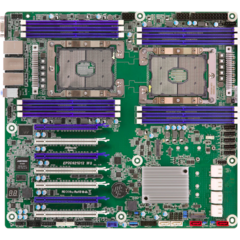All these RAIDs got me confused
Go to solution
Solved by AngryBeaver,
So choosing raids comes down to what you want. Do you want redundancy? Do you want increased speed? How many drives/usable space do you need?
Depending on how you answer those questions the recommendation can shift drastically. For example if you just want speed, no redundancy and don't want to sacrifice space... then raid 0 is best. If you want no added speed, redundancy and don't care your space is halved then you can use raid 1. The other raid setups are all about finding the balance on speed, and drives used for redundancy (how many can fail before you lose it all).


















Create an account or sign in to comment
You need to be a member in order to leave a comment
Create an account
Sign up for a new account in our community. It's easy!
Register a new accountSign in
Already have an account? Sign in here.
Sign In Now